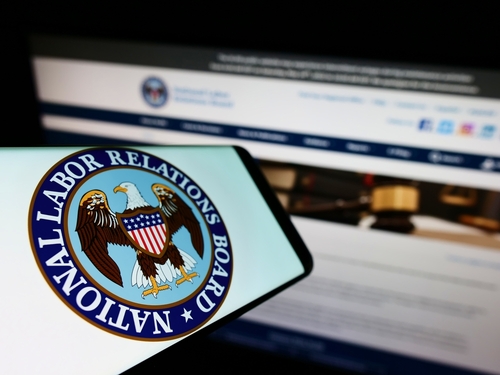A plan from the National Labor Relations Board (NLRB) to make more employers susceptible to joint employer status is expected to make a major change to the landscape for employers that use staffing companies or operate under the franchise business model.
The NLRB announced a Notice of Proposed Rulemaking on September 6 that shows a majority of the Board’s members wants to return to a standard that makes joint employment status more likely. And that’s bad news for employers eager to avoid the complexities of joint employment.
If the NLRB proposed rule is finalized, it “will have a profound impact on how businesses staff themselves,” according to Burton J. Fishman, an attorney with FortneyScott in Washington, D.C.
The proposed rule would essentially reinstate the standard set under the NLRB’s 2015 Browning-Ferris case. That decision makes it possible for an employer to be deemed in a joint employment relationship even if it has only “indirect control” over workers.
The Browning-Ferris standard fell after the Trump administration NLRB issued a rule in April 2020 saying an employer could be a joint employer of a different employer’s employees only if it exercised direct control over their essential terms of employment.
The NLRB’s Democratic members—Chair Lauren McFerran, Gwynne A. Wilcox, and David M. Prouty—proposed the new rule. The Republican members of the Board—Marvin E. Kaplan and John F. Ring—dissented.
Direct vs. Indirect Control
If the proposed rule is made final and the indirect control standard is reinstituted, franchisors will be more likely to be deemed joint employers with their franchisees, which would make workers employees of the parent, Fishman says.
According to Fishman, being joint employers makes the parent companies “ripe targets” for union organizing and unfair labor practices. “Thus, a great many standard franchise relationships, for example, will have to be reexamined to see if the kind of control—direct or indirect—a franchisor has affects the essential terms and conditions of employment,” he says.
Fast food giants have been an NLRB target for years, Fishman says, and the proposed rule would “put a bull’s eye on their backs.” Franchising has been a fast-growing business model in recent decades, and the proposed rule would have “a huge impact on how businesses are structured and staffed,” he says.
“In addition to franchisors, staffing agencies and similar businesses are exposed,” says Fishman. “Every business that contracts out will have to review the terms of their contracts to avoid joint employment.”
Richard Rainey, an attorney with Womble Bond Dickinson (US) LLP in Charlotte, North Carolina, also says businesses that use staffing agency employees should pay attention to the proposed rule.
“The Trump-era rule was narrower as it required that the alleged joint employer actually exercise direct and immediate control over the essential terms and conditions of employment of the workers in question,” Rainey says.
“By contrast, the proposed rule would find joint employer status exists where the alleged joint employers possess the authority to control a term or condition of employment either directly or indirectly,” Rainey says. “Joint employment status can be found even when the employer does not exercise the authority or just does so indirectly.”
Rainey says the proposed rule defines terms and conditions of employment broadly so that many decisions that usually are in the hands of the business using the workers are included and a joint employer can face liability.
For example, more than just hiring and firing is involved. Hours of work and scheduling, work rules, directions governing how work is performed, and workplace health and safety also are included.
“Having the power to control just one of these terms would lead to a finding of joint employer status,” Rainey says.
If the proposed rule is implemented, workers will have an easier time establishing that they are working for joint employers, and businesses that use staffing agencies for a segment of their workforce would be more likely to face union organizing campaigns by staffing workers. Those employers also would have to deal with workers’ unfair labor practice charges.
Next Steps
The NLRB is inviting comments on the proposed rule. Comments should be submitted either electronically to regulations.gov or by mail or hand-delivery to Roxanne Rothschild, Executive Secretary, National Labor Relations Board, 1015 Half St. S.E., Washington, DC 20570-0001. Comments on the proposed rule must be received on or before November 7. The NLRB must receive comments replying to comments submitted during the initial comment period on or before November 21.
Tammy Binford is a Contributing Editor at HR Daily Advisor.

